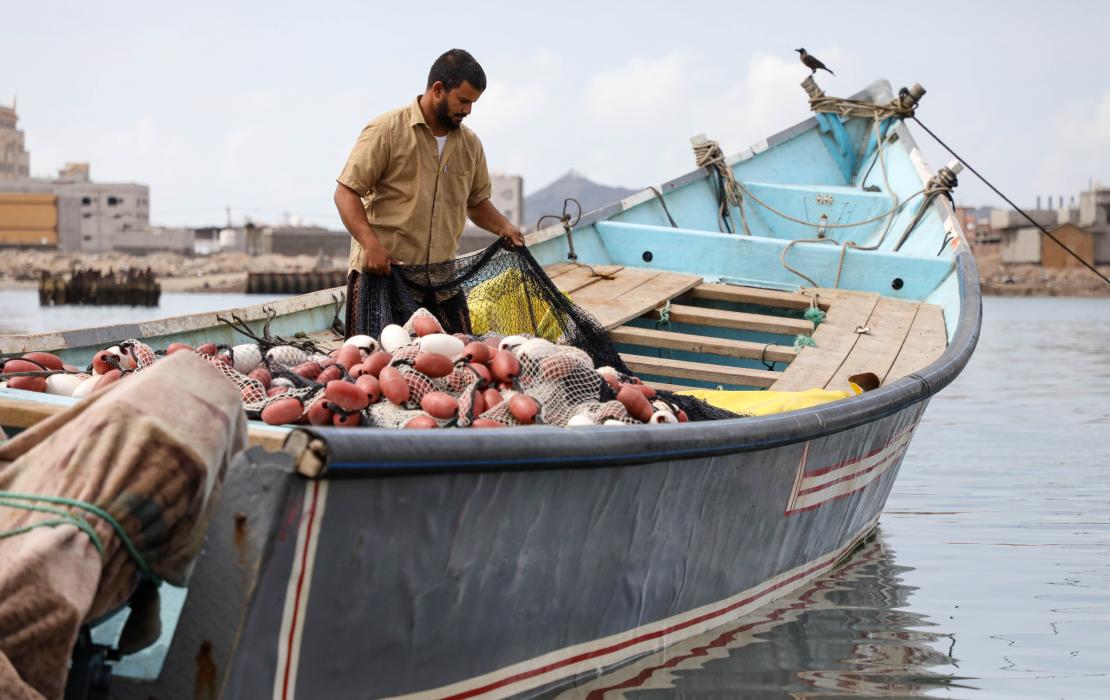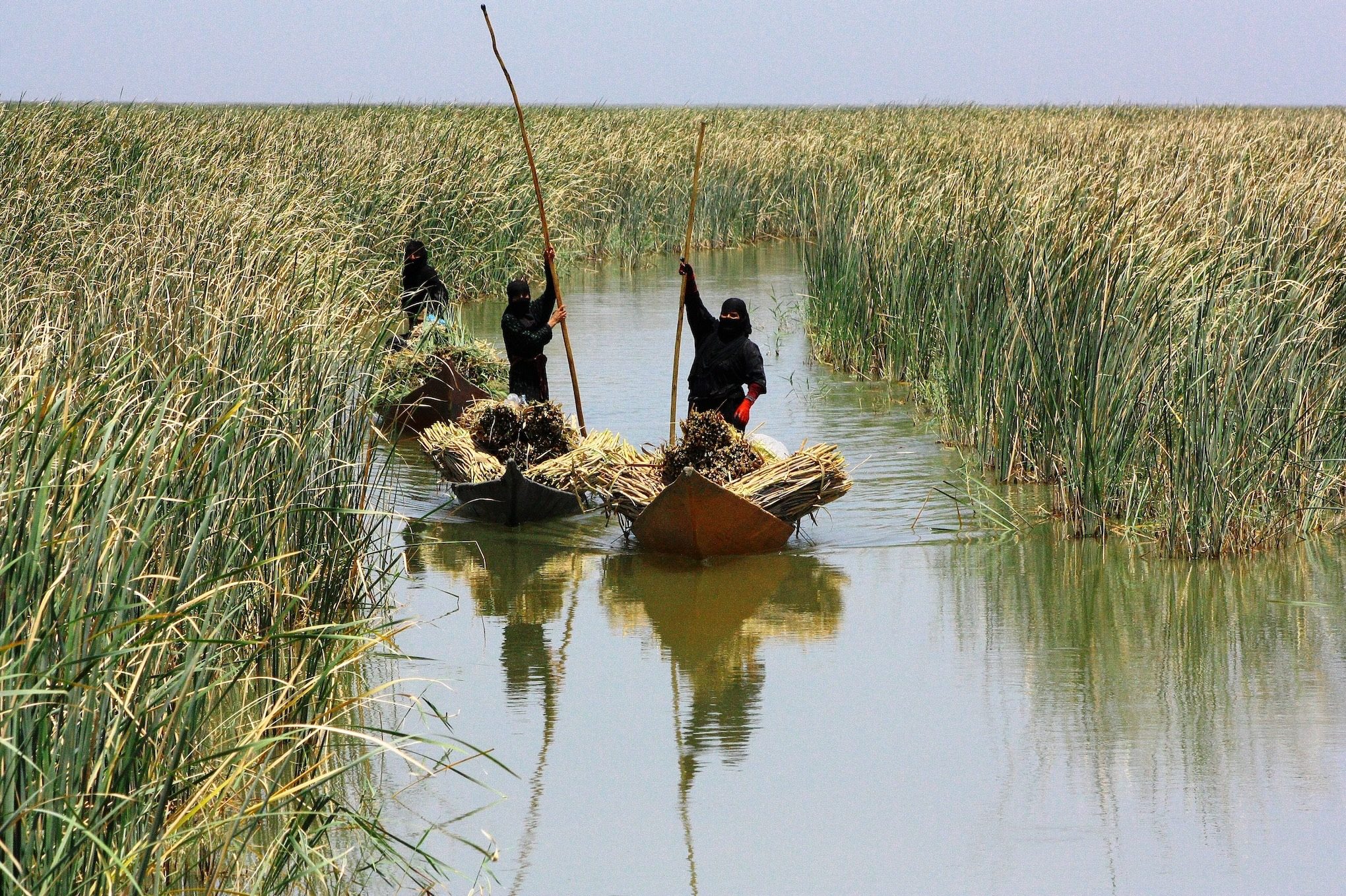
Photo: UNDP Iraq
The climate crisis is the greatest challenge humanity has ever faced, posing an existential threat to the future of civilization. At 1.2°C of warming, we are already witnessing how climate change is causing extensive loss and damage around the world, aggravating food, water, and livelihood insecurity, and threatening to reverse development trends in many countries and communities.
These impacts also exacerbate social tensions, conflict, and displacement, something that is particularly important in the Middle East and North Africa (MENA) region as it finds itself in an unprecedented era of multidimensional crises. The most water-scarce, food import-dependent region, MENA is now a global climate hotspot with temperatures rising twice as fast as the global average. Across the region, record drought cycles, forest fires, floods, and land degradation have impacted food and water security, triggered mass rural-to-urban displacement, and have contributed to a rapid rise in poverty and social vulnerability.
But many of the countries that have emerged as climate impact hotspots in the region are also flashpoints of conflict and displacement. That is not a coincidence. Climate change impacts contributed to the Arab uprisings a decade ago, as the region experienced its worst drought in close to 1,000 years from 2006 to 2010. Since then, climate change impacts have continued to accelerate and are now a central factor in the region’s complex and protracted state of fragility. Climate change is thus central to the poly-crisis that has beset the region in recent years.
As the crisis has expanded, the need for more effective development and humanitarian cooperation has also grown. Over the past decade, UNDP has doubled its level of cooperation in the MENA region to help communities manage risk and build resilience, through a climate security lens. Today, with a US$300 million portfolio for local action initiatives and over $1 billion of co-financing from public and private partners, this represents the United Nation’s largest grant-based offer of assistance for advancing a green transition in the region.
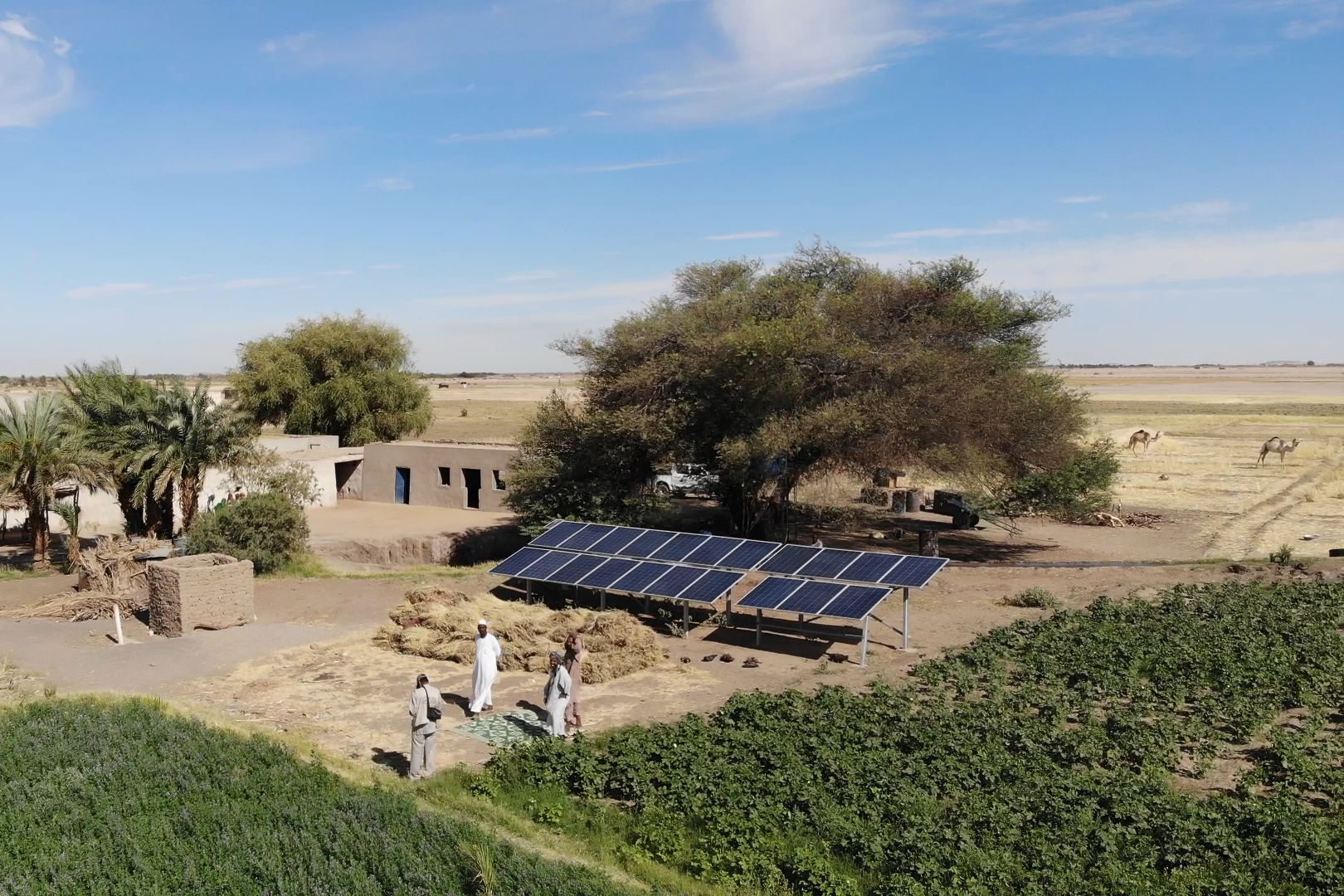
Photo: UNDP Sudan
Green solutions for crisis response and recovery
One priority area of this work has been to bring green solutions to the immediate response and recovery needs of communities in crisis. The ability of communities to cope with and rapidly recover from conflict hinges, in many ways, on their ability to regain access to energy, water, waste management and other services. These sectors are also crucial for climate action.
In such contexts, UNDP has expanded support for green solutions that address emergency needs while setting the stage to build back better. For example, UNDP is currently deploying decentralized solar solutions in places like Yemen, Sudan, Somalia, Palestine and Lebanon, empowering communities through renewable energy access for water systems, health and education services, small businesses, and livelihood stabilization needs.
This is coupled with policy support to integrate solar and other green solutions into crisis response and recovery plans. For example, under the UN Regional Refugee and Resilience Plan for the Syria crisis, UNDP has helped integrate low-carbon and nature-based solutions in national crisis response plans in Jordan and Lebanon to scale up green solutions in communities hosting refugees from Syria.
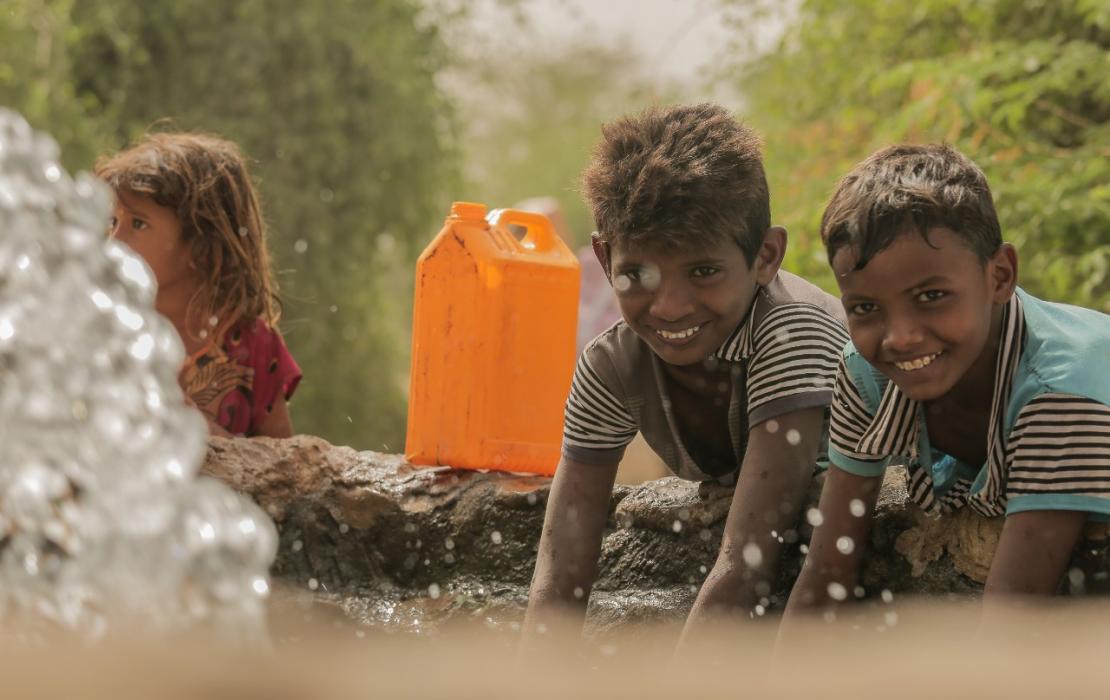
Photos: UNDP Yemen
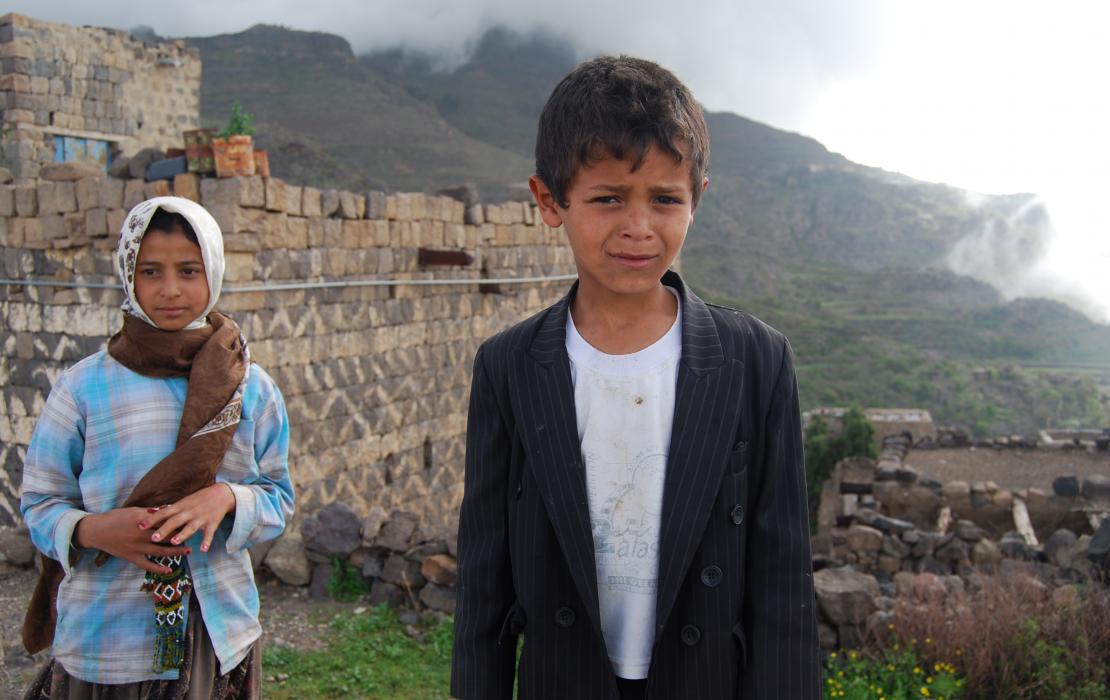
Ecological safety nets
Another key imperative under a climate security framework has been to ensure the medium- and long-term resilience of ecosystems and natural resources on which communities depend and on which crisis prevention increasingly rests. The resilience of livelihoods and the overall economy of the region is strongly correlated with the state of ecosystems such as deltas, wetlands, oases, marshlands, drylands, and montane forests. In fragile and conflict-affected countries, these natural systems have been under intense pressure from both war and climate change. As water insecurity, land degradation, and protracted droughts are becoming increasingly severe with each passing year, the ability of communities to return to agricultural and other nature-based livelihoods in post-conflict settings is called into question.
To this end, UNDP is expanding its cooperation to build more climate-resilient food and water systems and to commence ecosystem restoration measures at scale in fragile and conflict-affected parts of the region. New partnerships have been established in Yemen, Syria, Somalia, Sudan, Palestine, Lebanon, and Iraq to expand use of climate resilient crops, replenish groundwater aquifers and enhance water retention, rehabilitate degraded watersheds, drylands and forests, achieve land degradation neutrality, expand early warning systems, and build community resilience.
Impact is also seen at the upstream level, through UNDP's support for the design of National Adaptation Plans (NAP), enhanced Nationally Determined Contributions (NDCs) and National Biodiversity Strategy and Action Plans (NBSAP). In crisis-affected countries, these policy frameworks set the stage for implementation of the Paris Agreement and the Global Biodiversity Framework in a way that generates co-benefits for human security and crisis prevention.
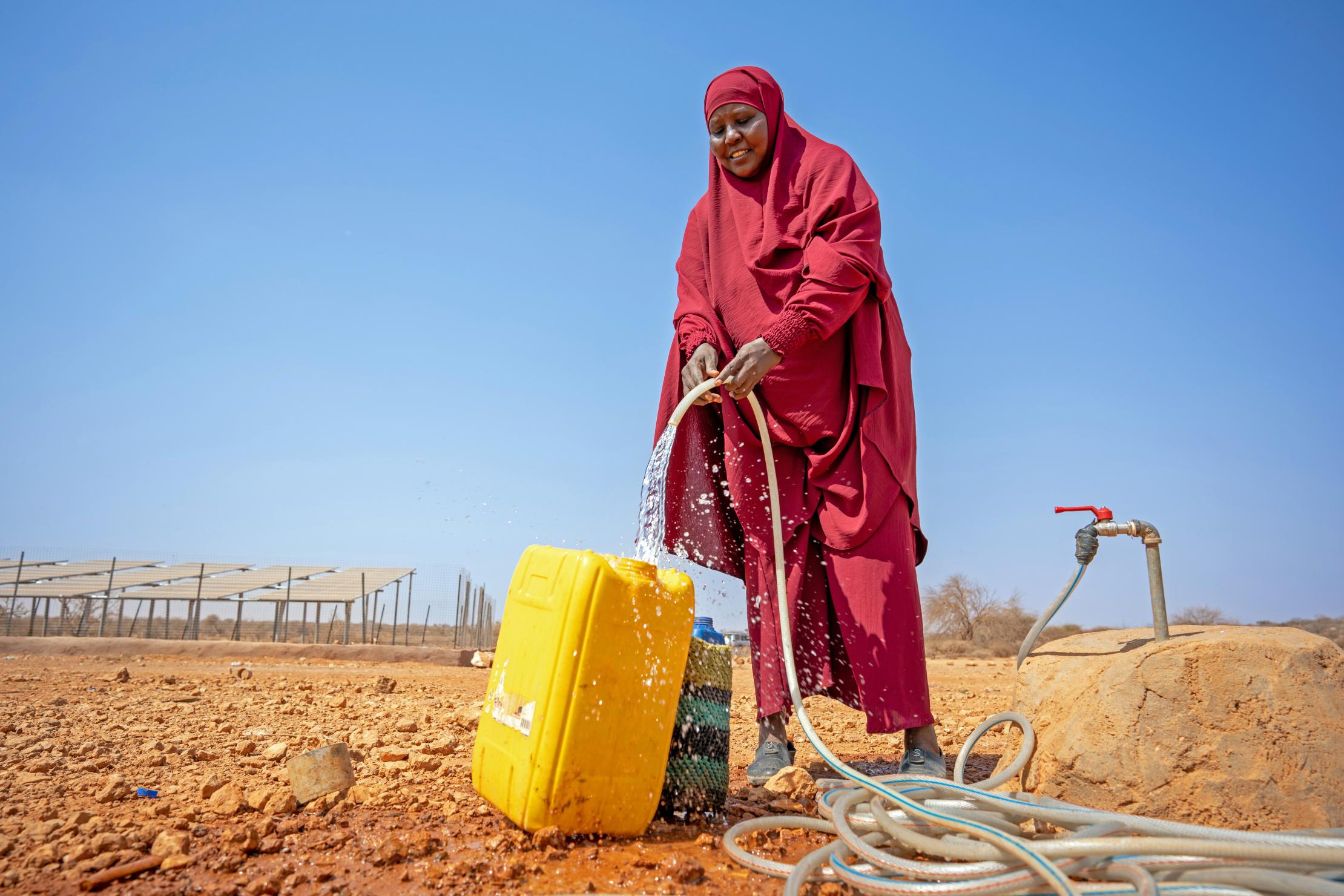
Photo: UNDP Somalia
Transforming development
Expanding levels of technical cooperation have had important benefits for strengthening local resilience and advancing the green transition in the MENA region, helping communities respond to and adapt to wave after wave of unfolding crises. But despite an expanding array of well-crafted initiatives, trends of ecological decline and displacement continue to escalate. Therefore, beyond scaling up response and adaptation measures, a climate security approach at its most ambitious must also support transformational change, to address root causes and have more systemic impact from a preventive perspective. While conventional adaptation focuses on measures that adapt current development trajectories, transformation is about shifting to new pathways or generating new ones.
The severity of the crisis enveloping the MENA region reminds us that today’s models of development are unsustainable. The conventional extractive oriented development model prevalent in the region is, in many ways, among the root causes of the growing vulnerability of communities and ecosystems. The multidisciplinary nature of risk today requires new development paradigms and policies that embrace the closely intertwined social and ecological systems and put nature at the center. A shift is needed to a new generation of risk-informed systems solutions based on an understanding of development not as a linear set of targets and outputs but as the outcome of complex socio-ecological systems.
An existential threat to communities and ecosystems, the multi-dimensional crisis in the region is also an existential moment for the future of development. In addition to supporting communities, the climate security agenda should entail a shift in overarching development practice; a transformation of the ‘how’ of development. Reimaging development beyond inherited visions of reductive, linear, and mechanistic goals and targets is, in many ways, the most urgent task on the road to 2030. With the climate and ecological crises now destabilizing the foundations of civilization, the reality of our interconnectedness to nature must become a new driver of change at the core of development policy-setting in the region.
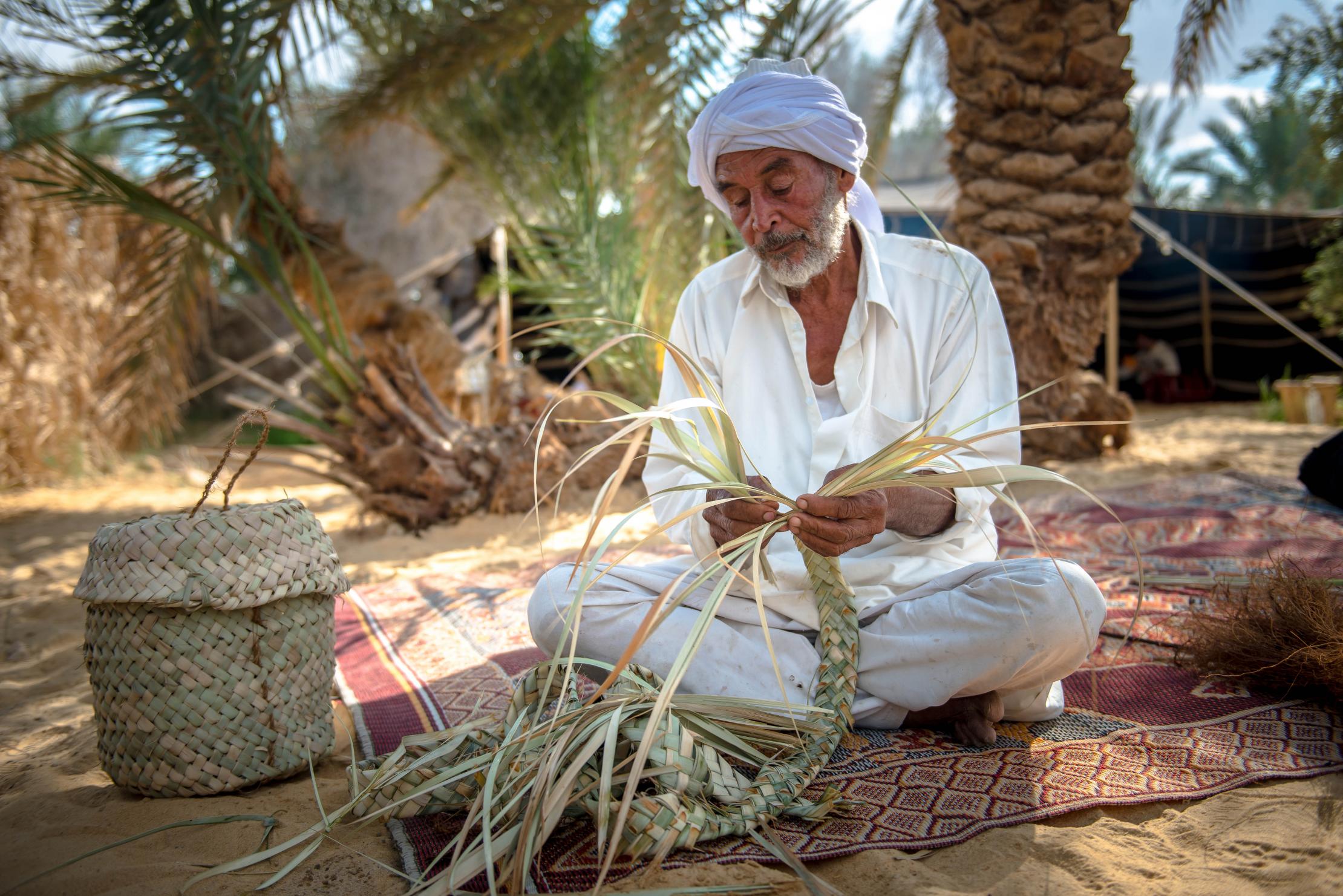
Photo: UNDP Egypt
Climate security has rapidly moved up the political agenda in the MENA region in recent years. Climate action is no longer seen just as an environmental imperative, but as a factor of risk governance, crisis prevention, and resilient recovery.
In 2023, two key events, the MENA Climate Week, convened in Saudi Arabia by the UN system, and the climate COP28 conference, organized in the United Arab Emirates, provide a unique opportunity to raise climate security issues from the region to the global stage. They also come at the right time to leverage new partnerships in the region to scale up green solutions for crisis response and recovery, expand ecological safety nets, and reshape development paradigms to be fit for purpose.
The converging forces of climate change and conflict are reshaping development prospects in the region and as more and more people in the region become vulnerable, it is clear there is no more time to lose.

